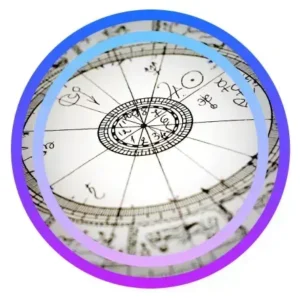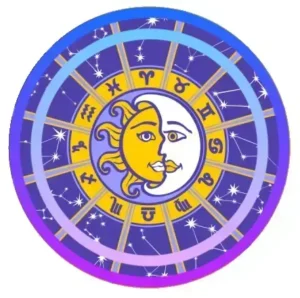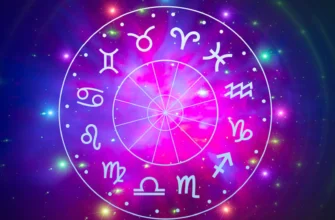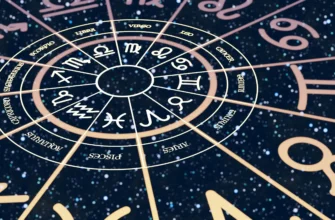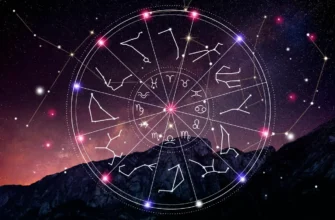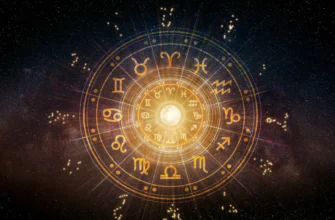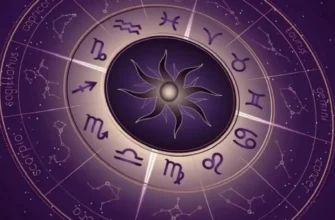Venus–Saturn synastry aspects often create relationships that feel serious from the very beginning—sometimes stabilizing, sometimes heavy, but always deeply formative. In synastry chart interpretation, Venus represents affection, desire, and emotional softness, while Saturn brings structure, boundaries, responsibility, and karmic lessons. When these planets meet, the connection rarely stays casual; Saturn pushes Venus to confront fears around love, intimacy, and long-term security. In relationship synastry, this dynamic tests whether two partners can build trust slowly and intentionally, or whether fear, insecurity, or emotional withdrawal will dominate the relationship.
Many couples with Venus–Saturn aspects experience a sense of obligation, destiny, or emotional maturity that develops over time. Through synastry chart analysis, this aspect often appears in long marriages or partnerships where commitment is non-negotiable. Yet the same placement can also highlight where a relationship feels unbalanced or restricted. Venus–Saturn synastry ultimately teaches that love grows stronger when both partners face emotional reality instead of fantasy—transforming limitations into loyalty, and challenges into an unshakeable bond.
Venus-Saturn aspects in synastry charts represent one of the most complex yet potentially rewarding connections in relationship astrology. When Venus, the planet of love, beauty, and pleasure, forms aspects with Saturn, the planet of discipline, structure, and limitation, a unique dynamic emerges that can either strengthen partnerships into enduring bonds or create restrictive patterns that stifle joy. These birth chart connections often indicate individuals who genuinely desire deep connection but sometimes struggle to achieve it harmoniously.
Synastry analysis of Venus-Saturn contacts reveals the karmic lessons, commitment potential, and growth opportunities embedded within romantic partnerships. Understanding these astrological aspects helps couples navigate the tension between Saturnian responsibility and Venusian spontaneity, ultimately determining whether relationships evolve into mature, lasting love or dissolve under the weight of Saturn’s demanding energy.
Understanding Venus and Saturn in Relationship Dynamics
Venus and Saturn represent fundamentally opposite energies within astrological interpretation. Venus embodies spontaneity, joy, romance, aesthetic appreciation, social connection, and the capacity for pleasure. This planet governs how individuals express affection, what they find beautiful, and their approach to love and relationships. Venus seeks harmony, ease, comfort, and enjoyable experiences, naturally avoiding conflict and hardship.
Saturn, conversely, represents structure, discipline, responsibility, limitation, maturity, and the passage of time. As the cosmic taskmaster, Saturn brings seriousness, caution, restraint, and sometimes coldness to areas it touches. This planet governs commitment, duty, boundaries, realistic assessment, and long-term planning. Saturn demands growth through challenge and maturity through restriction.
When these contrasting planetary energies interact in synastry, the resulting dynamic creates both tremendous potential for lasting partnership and significant challenges requiring conscious navigation. Venus-Saturn aspects frequently appear in the natal charts of couples who remain together for decades, indicating that despite difficulties, these connections support enduring commitment when both partners are willing to work through Saturn’s lessons.
At their best, Venus-Saturn couples show each other how to find balance—Saturn learns to relax and enjoy life’s pleasures through Venus’s influence, while Venus develops greater maturity, stability, and realistic expectations through Saturn’s grounding presence. At their worst, partners attempt to change each other fundamentally, with Saturn trying to restrict Venus’s natural exuberance and Venus trying to loosen Saturn’s rigid structure, ultimately leading to resentment and separation.
The specific aspect between Venus and Saturn determines how easily these energies integrate. Harmonious aspects like trines and sextiles facilitate natural balance, while challenging aspects like conjunctions, squares, and oppositions require greater effort and consciousness to navigate successfully. Regardless of aspect type, Venus-Saturn connections always involve learning to honor both pleasure and responsibility, spontaneity and structure, joy and maturity.
Venus Conjunct Saturn in Synastry
Immediate Attraction with Underlying Restriction
When Venus and Saturn form a conjunction in synastry charts, both partners experience strong and immediate attraction. However, these relationships can become monotonous and boring more quickly than other connections. In fact, Venus conjunct Saturn synastry suggests that even the honeymoon period may feel somewhat bland. The relationship can be quite stable but not particularly exciting. Couples easily fall into routine patterns even when newly acquainted.
Usually, the Saturn partner advocates for routine and predictability in all life aspects. This predictability manifests in daily life—the same conversations repeated endlessly, spending time with the same friends every week, following identical schedules without variation. These relationships can be extremely stable and reliable, but they also risk feeling tedious or overly predictable.
The Saturn partner helps stabilize the Venus partner’s emotions and thoughts, but without careful awareness, can easily overdo this stabilizing influence. Excessive control can suffocate the Venus partner, limiting their natural spontaneity and joy. Some individuals genuinely enjoy Venus conjunct Saturn relationships because they build trust between partners through consistency. They know exactly what to expect from each other—no surprises, no uncertainty, no unpredictability.
This predictability may be the key reason couples remain together even when joy fades from the partnership. Loyalty and devotion become paramount in such relationships, with many preferring to maintain the connection simply for the sense of security it provides rather than for happiness or fulfillment.

The Saturn Partner’s Restrictive Influence
The Saturn partner sometimes appears distant or authoritarian in Venus conjunct Saturn synastry. In worst-case scenarios, they attempt to limit the Venus partner’s freedom, becoming increasingly controlling or patronizing. The Venus partner may appreciate some of the Saturn partner’s firmness initially, often through “opposites attract” dynamics, but can also feel increasingly restricted, especially in social expression and creative pursuits.
Over time, the Venus partner may become disappointed in the relationship with the Saturn partner. They may simply want more fun, spontaneity, and joy in life, feeling their vitality is being drained. However, the Venus partner also recognizes that the Saturn partner provides genuine security and stability, creating internal conflict between freedom and safety.
The Venus partner may feel that parts of their personality are suppressed when Saturn imposes harsh rules or expectations. Ultimately, they may sacrifice their inner light for security, gradually dimming their natural radiance to accommodate Saturn’s restrictions. Venus-Saturn synastry relationships can truly change the Venus partner over time, especially if the Saturn partner becomes overly dominant or controlling.
Finding Balance and Mutual Growth
For Venus conjunct Saturn synastry to work successfully, the Venus partner must learn to work with the Saturn partner without losing spontaneity and love of fun. The Venus sign influences this dynamic significantly. If Venus is in a more serious sign like Capricorn or Virgo, the Venus person may feel more comfortable with Saturn’s limitations. If Venus is in a more unpredictable or independent sign like Sagittarius or Leo, the Venus person will rebel against these restrictions more strongly.
Saturn must learn to compromise so the relationship doesn’t become a prison for Venus. Moreover, Saturn can also learn from the Venus partner to relax and be spontaneous, discovering that life includes joy alongside responsibility. If relationships deteriorate to the point where the Venus partner fears expressing opinions or needs, significant changes become necessary for survival.
The Saturn partner must also be able to express needs (without being hurtful or cold) when feeling the Venus partner behaves overly emotionally or childishly, ensuring their needs receive acknowledgment. The Venus partner should learn to communicate with the Saturn partner logically rather than being irrational or unpredictable. In extreme cases, the Venus partner may be emotionally unstable or immature, requiring personal work to express emotions honestly without swinging dramatically from zero to one hundred.
The Deeper Karmic Lesson
Ultimately, Venus-Saturn synastry relationships involve extensive compromise and mutual adjustment. The Venus partner may feel loss of personal freedom, while the Saturn partner may feel their world is thrown into chaos by Venus’s inconsistency. However, if both partners are willing to put in emotional effort, they can both learn tremendously from these relationships.
These relationships remain interesting because partners are often attracted to opposite qualities in each other while simultaneously feeling uncomfortable when the other person behaves completely differently than they would. If the Venus partner can show appreciation for the Saturn partner’s stabilizing presence, the Saturn partner often becomes more willing to compromise. If the Saturn partner can experiment with the Venus partner’s approach, enjoying communication and connection with them, the Venus partner also becomes more willing to compromise.
If both partners are willing to change and adjust to each other’s needs, Venus-Saturn synastry can work beautifully. Over time, relationships can become both reliable and enjoyable simultaneously. The Venus partner must adapt to Saturn’s limitations regarding relationships, planning, and daily life, but the Saturn partner must also be willing to step outside their comfort zone, which can generate tremendous insecurity.
In fact, Saturn’s insecurity often masks itself through strong self-discipline and rigid control, but these relationships can become opportunities to overcome internal difficulties. Venus literally exposes Saturn’s insecurity, bringing it to light where it can be addressed. Venus-Saturn synastry aspects can lead to rapid personal development for each partner as they’re forced to release control and embrace vulnerability.
If partners are truly willing to understand each other’s feelings and relationship needs, they can learn to be vulnerable with each other. Deep down, both partners feel unworthy of love—a karmic wound requiring healing. They need to learn to open up and sincerely express love and affection to each other to find acceptance in these Venus-Saturn synastry relationships.
In fact, they need to learn to love aspects of each other that differ from their own nature. These differences can be appreciated, and couples can create diverse, growth-oriented relationships when both commit to this practice. Ultimately, the Venus partner truly desires emotional intimacy from the Saturn partner. If Saturn can open up and explain why they feel certain ways, the Venus partner’s entire perspective will shift.
This aspect suggests both partners experience karmic fear of rejection requiring healing. Both feel their essential nature will be rejected by the other, but first they need to learn self-acceptance before they can accept these differences. Sometimes these couples knew each other in past lives and created these wounds together, while other times they simply had similar issues and came together hoping for healing.
Regardless of past life connections, couples with Venus-Saturn synastry have opportunities to understand they are worthy of love and that by feeling acceptance from another person, they can accept those who differ from themselves. This represents profound soul work available through these challenging but potentially transformative relationship dynamics.
Venus Trine Saturn in Synastry
Natural Commitment and Complementary Energies
When Venus trine Saturn appears in synastry charts, both partners naturally feel committed to each other from the beginning. The Saturn partner may take on the provider role and establish certain relationship structures. Meanwhile, the Venus partner inspires fun and creativity, bringing joy and spontaneity to the Saturn partner and helping them feel relaxed and comfortable.
Unlike other placements, with Venus trine Saturn in synastry, Venus may not feel constrained by Saturn’s more rigid approach. Moreover, Saturn can be a stabilizing force for Venus in beneficial ways. The Venus partner may even enjoy this aspect of the Saturn partner, knowing they can trust Saturn regardless of circumstances or challenges.
Venus trine Saturn in synastry certainly creates “opposites attract” relationship dynamics, but this typically works harmoniously. Energy flows naturally between partners. The relationship feels very reliable, especially for the Venus partner who may have experienced instability in previous relationships. An innate sense of compromise exists, as each partner recognizes their differences but can work together cooperatively.
Both partners are willing to put effort into making the relationship strong and lasting. This doesn’t mean problems won’t arise, but it does mean both sides are willing to work through any emerging issues constructively. With Venus trine Saturn synastry, working together to overcome any disagreements becomes important. Partners shouldn’t ignore the more unpleasant aspects of relationships but should actively explore any problems seeking mutual understanding.
Learning and Growth Through Natural Harmony
Venus trine Saturn synastry suggests both partners will naturally learn lessons from these relationships without the struggle present in harder aspects. Saturn will teach Venus to be more grounded, realistic, and mature, while Venus will teach Saturn to relax, speak up, and express emotions more freely and authentically.
Sometimes this aspect can be karmic, indicating couples knew each other in past lives, but many of these lessons have already been learned in previous incarnations. Now the couple can incorporate these lessons into their lives and benefit from them without repeating painful patterns. The trine aspect provides ease and natural flow, allowing partners to support each other’s growth without the friction present in conjunctions, squares, or oppositions.
The Venus partner brings lightness, beauty, romance, and joy into Saturn’s often serious world, while Saturn provides stability, commitment, reliability, and realistic perspective that grounds Venus’s sometimes unrealistic romantic ideals. Together, they create balanced partnership where both pleasure and responsibility receive appropriate attention.
Trust develops easily with Venus trine Saturn synastry because the Saturn partner demonstrates consistency and reliability while the Venus partner brings warmth and affection that softens Saturn’s sometimes cold exterior. This aspect frequently appears in long-term marriages and committed partnerships, as it supports both romantic connection and practical life-building.
Venus Sextile Saturn in Synastry
Venus sextile Saturn synastry indicates strong feelings of commitment from the beginning of the relationship. These individuals likely feel like both friends and romantic partners simultaneously. Both partners respect each other and easily fit into their respective roles within the relationship structure. In some ways they are opposites, but they complement each other beautifully.
Saturn brings realism and practicality to the relationship, while Venus contributes optimism, lightness, and fun. If other chart aspects support the relationship, these two lovers can truly complement each other wonderfully! However, in Venus sextile Saturn synastry, both partners may need to work on developing these qualities in each other in positive ways rather than allowing shadow expressions to dominate.
Saturn can learn to provide stability without suppressing the other person, while Venus can maintain pleasure and enjoyment without reacting overly emotionally or becoming unstable. The Saturn partner will express love quietly and confidently, which helps the Venus partner trust their loyalty and devotion deeply. The Saturn partner may be more traditional in relationships, which Venus can appreciate and value.
At the same time, the Venus partner will be romantic and cheerful, bringing joy and lightness into daily life. Saturn will highly appreciate the spontaneity Venus brings to the relationship, discovering that carefully planned structure can coexist with spontaneous joy. The sextile creates opportunity for growth and integration that requires some effort but flows more naturally than square or opposition aspects.
Venus Opposite Saturn in Synastry
Instant Understanding with Deep Karmic Implications
When Venus opposes Saturn in synastry charts, couples feel they instantly understand each other. This recognition can be almost overwhelming in intensity. Often such relationships indicate deep karmic connections from past lives, but healing work is also necessary for the relationship to thrive. Like most oppositions in astrology reading, Venus opposite Saturn can be the very glue that holds relationships together, creating magnetic attraction through polarity.
However, this also suggests that if couples decide to stay together, they will need to overcome significant obstacles and challenges. Both partners may desire something they’ve never truly received in relationships but still maintain hope of obtaining it through this connection. Because of this hope, relationships can last for years despite ongoing difficulties.
Whether they consciously realize it or not, both partners crave genuine emotional intimacy and unconditional acceptance—the very things most difficult for Venus-Saturn contacts to provide naturally. In Venus opposite Saturn synastry relationships, the Saturn partner can be very difficult to change or influence. They may be quite domineering and attempt to force the Venus partner into a desired form or mold.
The Challenge of Opposite Approaches
The Saturn partner may see the Venus partner’s natural radiance and joy but seems incapable of relaxing and joining in that experience. This creates friction as two partners approach life in diametrically opposite ways. When Venus feels happy and relaxed, the Saturn partner may belittle or show contempt for the Venus partner’s expression. It’s important for the Saturn partner to relax and try to see things from the Venus partner’s perspective rather than judging their different approach.
Saturn may consider their rules always correct, maintaining black-and-white thinking without nuance or flexibility. This rigidity can be truly challenging, but if Saturn doesn’t learn to temper their authoritarian approach, they risk losing Venus’s spark entirely. Often Saturn’s strictness stems from deeply rooted fears and insecurities. Sometimes Venus can help them overcome these fears, but Saturn must be willing to put in the effort and face their shadows.
If Saturn refuses personal growth work, the relationship will inevitably be difficult and potentially damaging to both partners. At the same time, the Venus partner needs to understand Saturn’s boundaries and limitations. This understanding flows more smoothly if Venus is in pragmatic signs like Capricorn or Virgo, but proves more difficult if Venus is in mutable or fire signs that resist structure.
The Path to Integration
In Venus opposite Saturn synastry relationships, compromise is absolutely necessary for success. If both partners are willing to make efforts, they can find the golden mean between extremes. Neither should excessively focus on their own needs at the expense of their partner’s wellbeing. Instead, they should learn to find balance between personal needs and partner needs so each person feels satisfied and valued.
The opposition aspect creates tension that can either tear relationships apart or forge them into something stronger through conscious integration of opposites. Partners must recognize that they each hold something the other needs—Venus holds joy, spontaneity, and emotional warmth, while Saturn holds stability, maturity, and commitment. When both can appreciate what the other brings rather than trying to change them, the opposition transforms from obstacle to asset.
Venus Square Saturn in Synastry
Critical Judgment and Wounded Self-Worth
When Venus square Saturn appears in synastry charts, Venus may perceive Saturn as cold or harsh. This perception can feel quite threatening to Venus’s sense of self-worth. Saturn must learn to express criticism less judgmentally and with greater compassion. In fact, Saturn may judge Venus for everything they enjoy, so Venus square Saturn synastry relationships can seriously damage Venus’s self-esteem over time.
It’s important for Saturn to recognize that Venus has feelings and sensitivities requiring respect. Saturn must learn to show healthy empathy in relationships rather than cold assessment or harsh criticism. At the same time, Saturn may experience intense anxiety about losing the relationship or losing Venus. The Saturn partner needs to learn to feel more confident in themselves and the relationship, otherwise they may begin excessively restricting or controlling Venus out of fear.
Sometimes in Venus-Saturn synastry relationships, both partners may feel the world is somehow trying to separate them. Perhaps others disapprove of the relationship, or perhaps external circumstances prevent them from staying together easily. These relationships often reflect some trauma or pain from past shared lives that carries forward into current dynamics.
Past Life Wounds and Present Challenges
Harsh judgments often persist from previous incarnations, continuing into this lifetime and creating familiar painful patterns. The Saturn partner is unable to give the Venus partner what they need emotionally. Often Venus ends up experiencing dissatisfaction and resentment toward Saturn as a result. Sometimes this occurs simply because Saturn is stubborn and unable to see the value in Venus’s different approach, but Venus may still feel suppressed or even disappointed when around Saturn’s dampening presence.
Venus may perceive Saturn as lacking empathy or being emotionally cold, while Saturn may perceive Venus as childish, undisciplined, and immature. It’s important for couples with Venus square Saturn to actively avoid falling into this negative cycle of mutual criticism. When they start criticizing each other, this signals the need to step back and carefully examine these judgments before allowing them to influence relationship dynamics destructively.
Both partners must maintain devotion to each other while also learning to have fun together so neither feels suppressed or controlled. The Saturn partner should focus on being open-minded and understanding why the Venus partner behaves in certain ways rather than immediately judging. They need to appreciate the Venus partner as they are, recognizing that different doesn’t mean wrong.
Transforming Judgment into Understanding
At the same time, the Venus partner should focus on respecting boundaries established by the Saturn partner and understanding why certain commitments or routines are so important to Saturn. Venus square Saturn can truly benefit the Venus partner long-term, even though the process may be painful during difficult moments. At best, Saturn can exert stabilizing influence on Venus, genuinely helping them develop and mature as individuals.
If relationships don’t spiral out of control, both partners can truly improve each other’s lives, but this should be achieved without harsh judgment or attempts to fundamentally change the other person. The biggest problem in Venus square Saturn relationships is that both Saturn and Venus tend to judge without trying to understand first. If they approach each other’s issues from a perspective of wanting to learn rather than condemn, they can begin accepting their differences as valuable rather than threatening.
If partners have Venus square Saturn synastry, remembering that both may have different perspectives on the same conversation or event becomes crucial, and both perspectives are valid from their respective positions. Learning to say “I feel that this…” instead of “This is…” makes enormous difference, and expecting the same language from partners creates space for mutual validation.
Arguing about the essence of something won’t help when partners view the world differently due to fundamentally different planetary energies. Ultimately, partners need to learn to work together and become more flexible rather than trying to control each other rigidly. Saturn may consider their judgments fair because they view Venus as superficial or unpredictable, while Venus may perceive Saturn as truly cold and unfeeling.
Essentially, all these perceptions are incomplete and somewhat inaccurate, but partners need to dig deeper to reach understanding rather than reacting with immediate judgment. Again, these judgments will only disappear through honest understanding, vulnerability, and willingness to see the full person rather than just the threatening differences.


